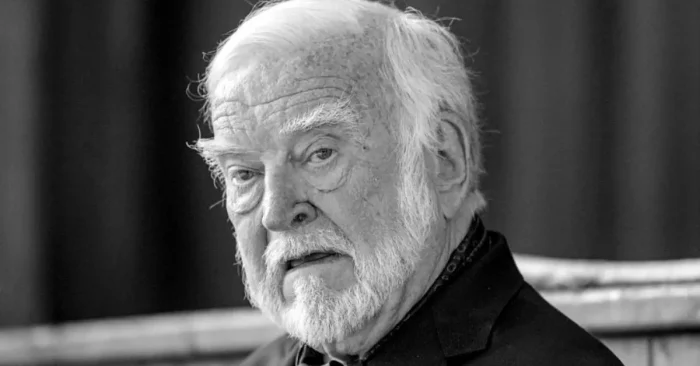Mihály Csíkszentmihályi – Biography
Early Life and Family Background
Mihály Csíkszentmihályi was born on September 29, 1934, in Fiume, Italy (now Rijeka, Croatia), to Hungarian parents. His father, Alfred Csíkszentmihályi, was a Hungarian diplomat, and his mother, Edith Jankovich de Jeszenicze, came from an aristocratic lineage. Due to political instability during and after World War II, the family moved frequently across Europe before settling in Rome. His father refused to align with the Communist regime in Hungary, eventually leading the family to emigrate to the United States in 1956. These early experiences with war, displacement, and political upheaval deeply shaped Mihály’s worldview and inspired his interest in human resilience and well-being.
Education and Academic Foundations
After moving to the United States, Csíkszentmihályi pursued higher education at the University of Chicago, where he earned a B.A. and later a Ph.D. in psychology. His academic journey was influenced by thinkers such as Carl Jung and Abraham Maslow. His doctoral research focused on creativity and the inner workings of human experience, laying the groundwork for his later contributions to positive psychology. During this time, he began exploring what makes life meaningful beyond material success or superficial pleasures—a quest that ultimately led to his theory of flow.
Development of Flow Theory
Mihály Csíkszentmihályi is best known for developing the concept of “flow,” a mental state of deep focus, immersion, and enjoyment that occurs when a person is fully engaged in an activity. He introduced the concept in his groundbreaking book “Flow: The Psychology of Optimal Experience” (1990), which became a seminal work in both psychology and self-help literature. Flow has been described as the state where challenge meets skill, and it is characterized by a sense of timelessness, clarity, and intrinsic motivation. Csíkszentmihályi’s research demonstrated that people experience the deepest satisfaction when they are “in the zone,” a state of optimal functioning across work, play, and creativity.
Academic Career and Influence
Csíkszentmihályi held various academic positions throughout his career, most notably at the University of Chicago, where he served as a professor and later head of the Department of Psychology. He also taught at Claremont Graduate University in California, where he co-founded the Quality of Life Research Center. His influence extended across multiple fields, including education, business, sports, and the arts. Through his lectures, books, and collaborations, he helped establish positive psychology as a legitimate academic discipline alongside Martin Seligman. His ideas about intrinsic motivation and meaningful work have profoundly impacted leadership, organizational behavior, and educational theory worldwide.
Personal Life and Legacy
Mihály Csíkszentmihályi was married to Isabella Selega Csíkszentmihályi, a sociologist and fellow academic. They had two sons, including Christopher Csíkszentmihályi, a technologist and researcher. Known for his humility and intellectual curiosity, Mihály led a life devoted to understanding human potential and well-being. He passed away on October 20, 2021, at the age of 87, leaving behind a legacy that continues to shape modern thought on happiness, creativity, and optimal living. His work is widely cited in both scholarly literature and mainstream media, remaining a cornerstone for those seeking deeper fulfillment and engagement in life.
Publications and Cultural Impact
In addition to “Flow,” Csíkszentmihályi authored several influential books including “Creativity: Flow and the Psychology of Discovery and Invention” (1996), “Finding Flow” (1997), and “The Evolving Self” (1993). His writings emphasize the power of focus, mastery, and purpose as keys to personal growth and societal progress. His research has been integrated into educational curricula, corporate training programs, and coaching strategies across the globe. Csíkszentmihályi’s concept of flow has become a foundational element in understanding peak performance and has been applied in disciplines ranging from neuroscience to digital game design.
Conclusion
Mihály Csíkszentmihályi’s pioneering work in psychology redefined how people understand happiness, engagement, and achievement. His theory of flow offered a universal framework for finding meaning in everyday activities, transforming how individuals and organizations approach work, learning, and creativity. As a scholar, educator, and thinker, he left an indelible mark on the world by showing that true fulfillment lies not in external rewards, but in the quality of our experiences and the joy of losing oneself in purposeful action.
Frequently Asked Questions
What is Mihály Csíkszentmihályi known for?
He is best known for developing the concept of “flow,” a psychological state of deep focus and enjoyment during meaningful activity.
What is the book “Flow” about?
“Flow: The Psychology of Optimal Experience” explores how people find happiness and fulfillment when they are fully engaged in challenging tasks.
Where did Csíkszentmihályi work as a professor?
He worked at the University of Chicago and Claremont Graduate University, where he also founded research centers on quality of life and creativity.
Did Mihály Csíkszentmihályi contribute to positive psychology?
Yes, he was a major figure in positive psychology and collaborated with other scholars like Martin Seligman to promote research on well-being and human potential.
When did Mihály Csíkszentmihályi die?
He passed away on October 20, 2021, at the age of 87.






